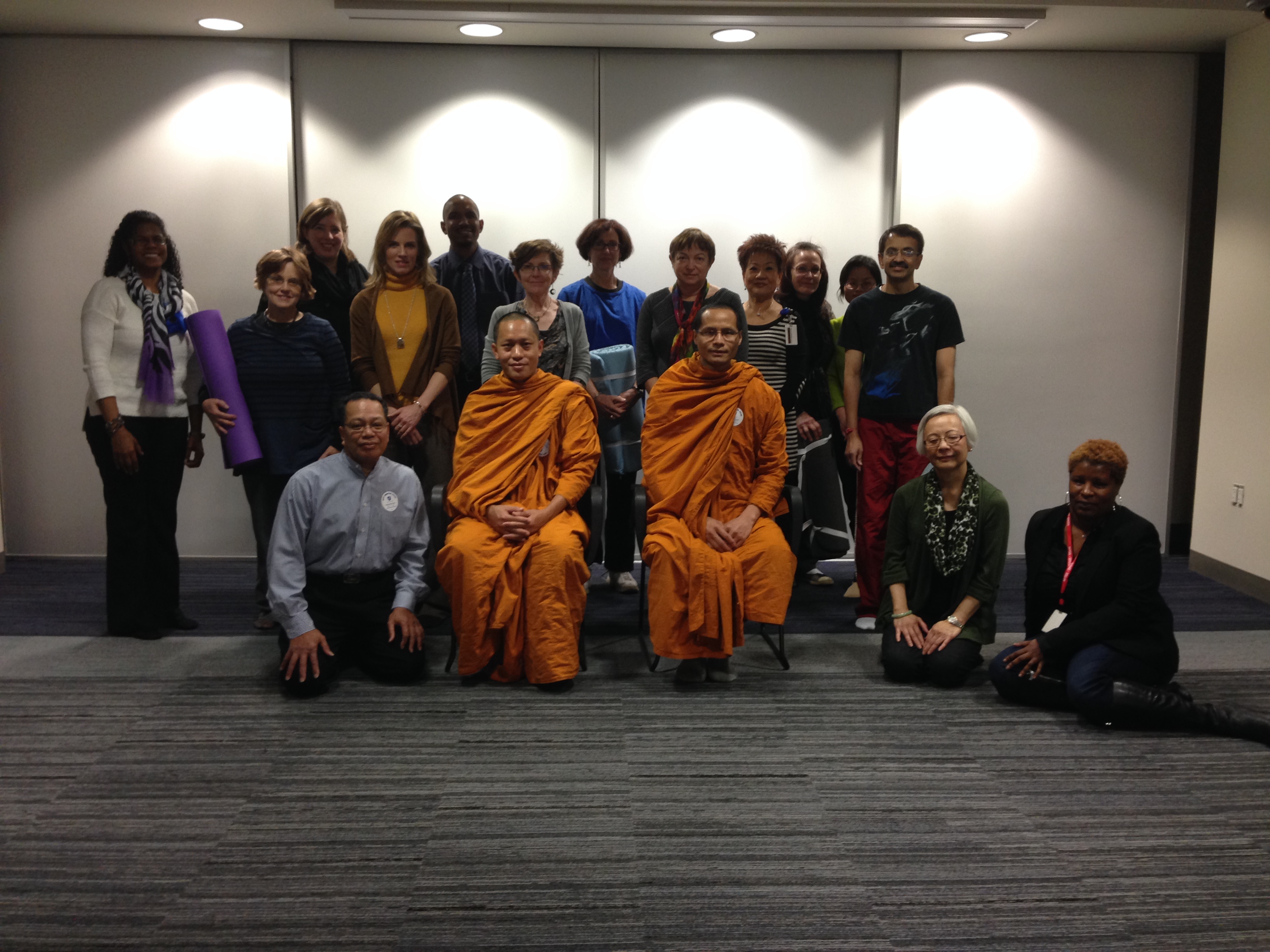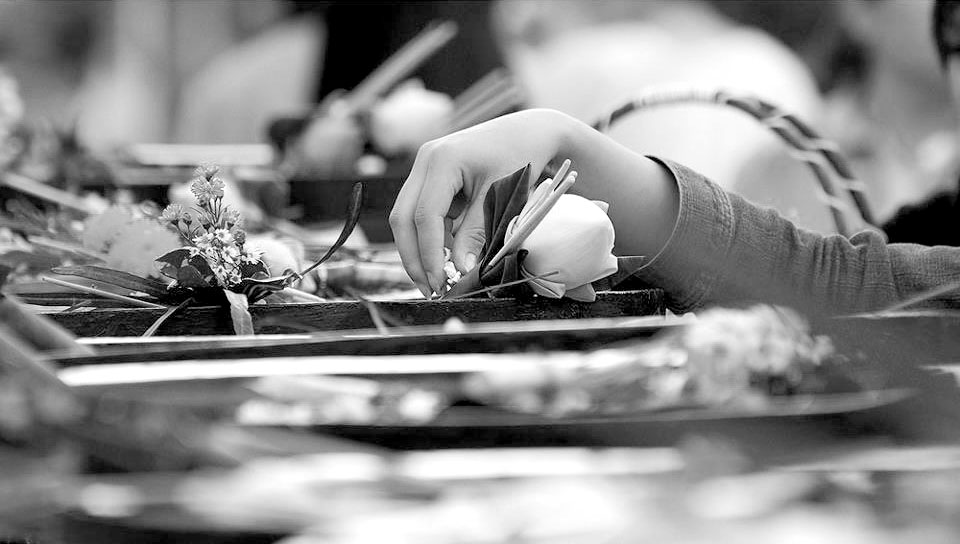The good Buddhist

THE GOOD BUDDHIST
PREFACE
The good Buddhist is one who is well behaved, kind hearted, understands the principles of life and nature, in order to live in this global community with happiness and normalcy without having to encroach on self or others, and is a role model as to how to live the peaceful life while still able to help those around them.
To be a good Buddhist is not merely a pledge and promise or written in one’s house registration but one must practice and develop oneself according to the Buddhadhamma that the Lord Buddha has detailed.
The Good Buddhist is a collection of the Buddha’s teaching, it is laid out as a model for those Buddhists interested in learning and developing oneself. I also would like to thank Mrs.Sukanda Jetabut and her daughter who help me translate this work from Thai into English and beside that I thank my Dhamma friends; PJ and Cristina who help me proofreading the book.
TATU JIRANG SATUNG DHAMMO. May the Lord Buddha’s teaching be with us eternally for the purpose of happiness and guiding all lives still in this cycle of rebirth in order to be rid of all worldly suffering.
With Metta
Piyamedhi
- Good behavior
Good behavior is about physical and verbal action that is purposeful and does not do any harm to self or others. The Lord Buddha has outlined the methodology and practice, leading to self-development and good behavior. This is the practice of outside-in training, once mastered, one will live a better and more purposeful life with a mind at peace due to upright physical and verbal behavior. Below are ways to practice good behavior:
- The good Buddhistshall religiously practice morning and evening chanting in order to cleanse and brighten one’s mind towards peacefulness.
- The good Buddhistshall ‘think, say, do’ with goodwill, have compassion to all living beings with the understanding that we are all in the same cycle of rebirth, therefore, should not encroach or do harm to others.
- The good Buddhistshall not let greed take over by stealing things from their owners or by using tricks or fraud in order to steal things that belong to others which will result in problems in society.
- The good Buddhistshall respect and treat other families and friends as if they were his/her own, shall not commit infidelity by getting involved sexually with others that are not his/her own wife/husband which is immoral and unlawful.
- The good Buddhistshall speak with consciousness, always thinking before speaking to consider whether or not what is about to be spoken would harm or help others. If it will do harm then one need control oneself and not speak.
- The good Buddhistshall take good care of oneself by not consuming unhealthy substances excessively that would lead to unconscious wrongdoing. A healthy body can do a lot of good deeds for oneself and others.
- The good Buddhistshall not have a habit of going out at night regularly in excess, which will result in wasteful spending and other possible negative consequences.
- The good Buddhistshall not get carried away and be excessively dominated by worldly entertainment, which will result in wasted money, and precious time that could be used to develop oneself and do good deeds.
- The good Buddhistshall not get involved in any kind of gambling which will lead to decline in one’s development.
- The good Buddhistshall seek good friends, friends who can be a good influence and lead or persuade in the right direction towards a better job, towards knowledge and morality.
- The good Buddhistshall be diligent, shall not let laziness take over, shall not rely and hope on fate or luck, shall be self-sufficient in daily life, shall more or less try to do good deeds for oneself and others and not waste precious time.
- The good Buddhistshall learn to sacrifice and share one’s belongings to others in need as appropriate and suitable, for example, the weekly meal offering to the monks and donation to various charities; one shall not be selfish as one is not the only one living on this earth. Selfishness is one of the reasons society is so chaotic and afflicted.
- The good Buddhistshall be respectful to those with seniority, moral and exceptional background and well accepted by society, such as one’s father, mother, teacher, older relative; this is in order to lessen one’s pride(ego).
14.The good Buddhist shall be enthusiastic in volunteering and helping society, without thinking that ‘it’s not your business;’ one should try to help out in some way in one’s society in order to ‘pay it forward’ to the society.
- The good Buddhistshall sacrifice and share useful knowledge to others which is the way to get rid of selfishness in the mind.
- The good Buddhistshall have kindness, joy when hearing of others’ happiness, good fortune, good deeds, job progress, and provide support to them; this will also lessen any jealousy one might have as well.
- The good Buddhistshall study the Buddha’s teachings(Tripitaka) and listen to Dhamma occasionally or any useful Buddha’s teachings in order to broaden the understanding of Buddhism.
- The good Buddhistshall have mercy and compassion for those who have lost direction towards good morality and need guidance.
- The good Buddhistshall seek those knowledgeable ones and find out what is good, bad, right, wrong, what is substantial and what’s not, which will be the basics of living a good life.
- The good Buddhistshall not focus on weaknesses and blame others, instead, focus on their positive strengths, choose to follow the positive strengths and use the negative ones as lessons to learn from.
- The good Buddhistshall seek an honest profession, shall not cheat, corrupt or encroach on others, shall not seek any profession that would harm lives or nature.
- The good Buddhistshall realize own duty and responsibility and do the very best to follow through.
- The good Buddhistshall wear proper attire appropriate to the occasion, location, shall not wear inappropriate attire in order to seduce others resulting in ill-willed encouragement.
- The good Buddhistshall seek to consume only good and nutritious food that is good for body and mind, shall not be greedy and believe in the misconception that good food must be expensive, shall realize the teaching of the Lord Buddha that ‘we only eat in order to sustain our lives so we can continue to do more good deeds’.
- The good Buddhistshall keep the living quarters clean and clear of clutter, not necessary to own a big house in order to compete in wealth with others; the main purpose of the house is to provide one with a place to rest, keep one safe from the elements and other dangers.
- The good Buddhistshall divide assets in 4 parts; one part is for self and family and for good use, two parts are for investment and developing of the business, and one part is saving for an emergencies such as healthcare.
B.Good hearted
For the good Buddhist, good hearted means that the mind is stable, strong, determined, unshaken, undistracted, unfretted and undemonstrative, but tender and gentle, suitable to handle any circumstances when encountered, whether pleasant or unpleasant. Those with good hearts will be able to overcome those circumstances, therefore, the good Buddhist should train their mind to be strong and stable and not to surrender to any life barriers using these following methods.
- The good Buddhistshall regularly train their mind for stability and purity suitable for the heart and soul through the practice of calming the mind and training the mind to understand the facts of everyday life, morning and evening using the methods below.
27.1 Mind Developing Training (Formal Practice) – involves meditation, 5-15 minutes every morning and evening, then gradually increasing the time to 30 minutes, 1 hour at the practitioner’s convenience. Mind developing starts with meditation, gently closing the eyes, relaxing the whole body, relaxing the mind, letting go of all worries, jobs, past, future and all other issues. Tell yourself that from hereon we will do good deeds for ourselves by relaxing our minds then gather all the attention to focus only on our breathing in and out naturally, not allowing the mind to get distracted and stray away, stay focused on the in and out breathing. If the mind slips away to the past or future or is full of thoughts, just acknowledge this and try to bring it back to the present in and out breathing. Keep doing this until the mind is at peace. The first goal is to bring the mind to a peaceful state; the next goal is to understand the nature of what is happening. Whether it is feelings, thoughts and other natural states that come and go, constantly changing, unable to control and remain in its original condition, we understand that we are only an observer acknowledging what is, neither happy nor unhappy while practicing with understanding.
27.2 Mind Developing Training (Informal Practice) – is being in the stage of mindfulness in everyday life from the time we get up until the time we lay down to rest. The Buddhist should be in mindfulness at all times, whether during thought, speech or action, in any position at any time, always in the present. For example, when walking, acknowledge that we are walking, standing-standing, sitting-sitting, sleeping-sleeping, washing, eating, etc… Continue to observe and acknowledge all that is happening at the present. Listed below are 3 techniques in living everyday life.
- Happiness – being happy doing things in the moment;
- Concentration – concentrate and focus on what you are doing in the moment; and
- Consciousness – being fully conscious of what you doing.
C.Good knowledge
Good knowledge is clear understanding of cause and effect, good/bad karma, and what is beneficial/non-beneficial. Buddhism praises those who use their wisdom in living the ‘glorious life’, wisdom is the guiding light for life led in the right direction; a life worthwhile, productive for oneself and society. Therefore, the good Buddhist should continue to perfect their practice and develop their knowledge.
- The good Buddhistshall be confident of the Buddha’s wisdom. In knowing that he did indeed reach enlightenment, we respectfully use him as a model in living everyday life including the belief in one’s ability to do, to be, and continue to search for further knowledge.
- The good Buddhistshall have the right mind; knowing what is right, wrong, good, bad, meaningful, and futile.
- The good Buddhistshall believe in karma. Action – good action leads to good karma, poor action leads to bad karma; as such it is important to be mindful of one’s actions, even in the form of thought. In one’s words and actions, one needs to be conscious to not harm one another.
- The good Buddhistshall adhere to the Buddha’s teaching and not rely on myth when encountering problems. One should ask oneself, ‘in this situation, what did the Buddha teach, what was his way of solving the problem?’ Once realized, then, follow the Buddha’s teaching accordingly.
- The good Buddhistshall practice mutual respect and treat others the way you want to be treated.
- The good Buddhistshall understand the general characteristic of all things; that all things change, are unstable (อนิจจัง), cannot remain in its original condition (ทุกขัง), and cannot be controlled and will continue to be according to cause and effect (อนัตตา), accept this understanding without feeling discouraged or sad.
- The good Buddhistshall be grateful to those who have been kind and helpful even if through minor deeds and reciprocate as the Lord Buddha and Phra Sareebutr have shown as a model of demonstrating gratitude.
- The good Buddhistshall live their life moderately in 8 ways (The Power of Right), which is the way to true happiness.
- Right View, Right Understanding: Able to see the good, bad, useful, futile and continue on to see the facts of life and nature such as ‘The Four Noble Truths’ (Dukkha, Origin of Dukkha, Cessation of Dukkha, the path leading to Cessation of Dukkha).
- Right Thought: Intend to be rid of sensual desires and not be consumed with sensuality, revenge, or encroachment; try to establish good positive thinking which is the flow for good merit.
- Right Speech: Speak the truth, speak gently, speak harmoniously.
- Right Action: Good behavior, not doing any harm to others and all livings, not stealing, able to control one’s sensual desires in order to do no harm to self and others.
- Right Livelihood: Hold a good profession that does not encroach others, avoid dishonest professions such as the selling of weapons, human beings, poisons, alcohol and drugs.
- Right Effort: An effort to try to avoid or stop bad things from happening while promoting good things to prosper.
- Right Mindfulness: Be conscious (through physical breath, big/small movements) – mind (feelings, thoughts and nature) in living daily life.
- Right Concentration: Have a quality mind with determination that is pure and lively.
- The good Buddhistshall understand the nature or the cycle of life that all things degenerate, become ill, die, straggle from loved ones, have their own karma (whatever karma he or she made, he or she will eventually receive the result of the karma). Upon understanding of this fact one shall be able to accept it and should not be overly sad.
- The good Buddhistshall understand that our lives consist of figures and appellation; figures being the 4 elements of ‘earth, water, wind and fire’ and appellations consisting of senses, mind, thought and knowledge – both are related, and inseparable. Once understood, one should rightfully treat both figures and appellation accordingly.
38.The good Buddhist shall understand that the conditions that arise in the earth in which we live are happiness, unhappiness, gossip, praise, fortune, misfortune, high ranking, loss of high ranking- when encountered with these conditions one should be able to accept with the understanding that these are facts of life, that nothing is permanent, and absolutely everything comes and goes.
Recommended Posts

ขอเชิญร่วมงานทอดกฐินสามัคคี – Kathina Ceremony 2018
October 31, 2018
ประวัติวัด
October 18, 2016

ขอเชิญร่วมงานทอดกฐินสามัคคี – Kathina Ceremony 2016
October 05, 2016

